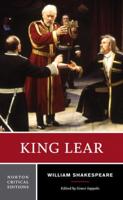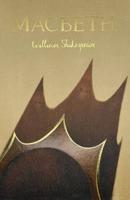Publisher's Synopsis
Excerpt from The Prometheus of �schylus: With Notes, for the Use of Colleges in the United States
Force and Might, two giant ministers of Jove, (see Hesiod's Theogony, accompanied by Vulcan, appear upon the stage; Force is a mute spectator, and his office may be conceived to have been that of dragging the struggling God to the place. But Might oversees the fulfilment of the sentence; and while Vulcan drives the nails, and clasps the chains, he chides the tardiness of the work, and taunts Pro methene with the folly of his opposition to the Gods. After these executioners have withdrawn, the Chorus of sea nymphs (probably fifteen in number), hearing the sound of driven steel, assemble and condole with their kinsman they are the representatives of that honest but weak class, whose open sympathy with the oppressed is beneath the tyrant's notice. Oceanus, their father, next appears, gives whole some advice to Prometheus, and offers to intercede with Jove in his behalf. The offer is scorned, and indeed was made rather for form's sake, than from any belief that it would be accepted. Oceanus is one who feels a degree of kindness for the oppressed, but wishes mainly to l?ep himself out of danger, and to stand well with both parties. After his de parture, Prometheus, as one who has resolved to endure his evils, and who seeks to occupy his mind with other thoughts, tells the Chorus the blessings which he had conferred upon mankind by the gift of fire. Thus he calls forth our inter est, and shows the malignity of Jupiter.
A new sufferer now appears. Lo, the victim of lust and vengeance, driven through the wildest parts of the earth in an altered form, passes the spot where Prometheus is chain ed. He predicts her future course, and relates her past wanderings. She leaves the place, goaded by the same maddening spectre of Argos which drove her thither. The dramatic connection of this part with the rest of the play is somewhat remote. It lies partly in the fact that Prometheus and lo are victims of the same oppression; but chie?y in the decree of fate, that one of her descendants, Hercules.
About the Publisher
Forgotten Books publishes hundreds of thousands of rare and classic books. Find more at www.forgottenbooks.com
This book is a reproduction of an important historical work. Forgotten Books uses state-of-the-art technology to digitally reconstruct the work, preserving the original format whilst repairing imperfections present in the aged copy. In rare cases, an imperfection in the original, such as a blemish or missing page, may be replicated in our edition. We do, however, repair the vast majority of imperfections successfully; any imperfections that remain are intentionally left to preserve the state of such historical works.









